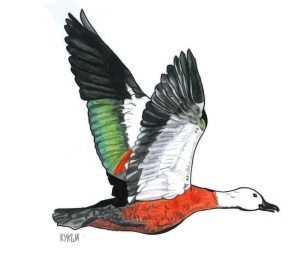Posted by Ellery McNaughton @EJ_McNaughton
Who’s afraid of the dark? Society in general it would seem. Some people have good reason to be, living in places where humans are not top of the food chain, and darkness provides cover for those that are. Yet even in places where predation is not a risk to contend with, darkness gets a bad rap. The Dark Side, the Dark Lord with his Dark Mark, dark magic, somehow we have conflated darkness with evil. Perhaps this is because in the dichotomy of light and dark, light outshines darkness in the PR department. Light is the stuff angels wear to look suitably holy. Light signifies safe places for lion kings to rule their lion kingdoms. Light is the symbol of enlightenment and civilisation, an indicator of human innovation, technology and progress. And in the immutable logic of opposing pairs, if light = good, then darkness must therefore = bad. It’s algebra, or something.

Choose light or choose dark. Choose the hero or the villain. Somehow they’re always the same choice
However, darkness really is our friend, preserving our sleep patterns and physiological processes, keeping our biological clock running in an orderly manner. It’s an unappreciated and often abusive friendship on our part. Natural darkness is being eroded away as we increasingly choose to hang out with the cool new kid, light. Natural limiters of daily activity are for lesser species, and if we want to work late into the night, nothing can stop us (even if the numerous health problems should). Some people love light so much that when their streetlights are changed to have less light spill, they buy outdoor lights to make up for the lack of illumination. That’s not just enabling a later bedtime; it is actively avoiding the presence of darkness. Why are we afraid of the dark?

Dumbledore promoting light pollution
While urban dwellers generally don’t have to deal with predation, in the dark we often feel at risk from other humans. Walking home at night becomes an exercise of fearful imagination, where every shadowy bush, alley or doorway becomes a hiding place for others up to no good. Light banishes the shadows and leaves no place for imagination to run riot; security lights are so named for a reason – they make us feel secure. This is in spite of the fact that light doesn’t appear to reliably banish the presence of the criminal element. Of course, even if light doesn’t actually make us safe, it is important for people to feel safe in their cities. And until we as a society stop viewing darkness as a villain to be conquered, light is a necessary evil.
Ellery McNaughton is a PhD student in the Centre of Biodiversity and Biosecurity, School of

Ellery
Biological Sciences, University of Auckland. Her project investigates the effects of a city-wide changeover in streetlight technology on urban bird behaviour and ecosystem function. She is supervised by Margaret Stanley, Jacqueline Beggs, Kevin Gaston (University of Exeter, UK) and Darryl Jones (Griffith University, Australia).





 Daria
Daria
 Dr Bruce Burns
Dr Bruce Burns